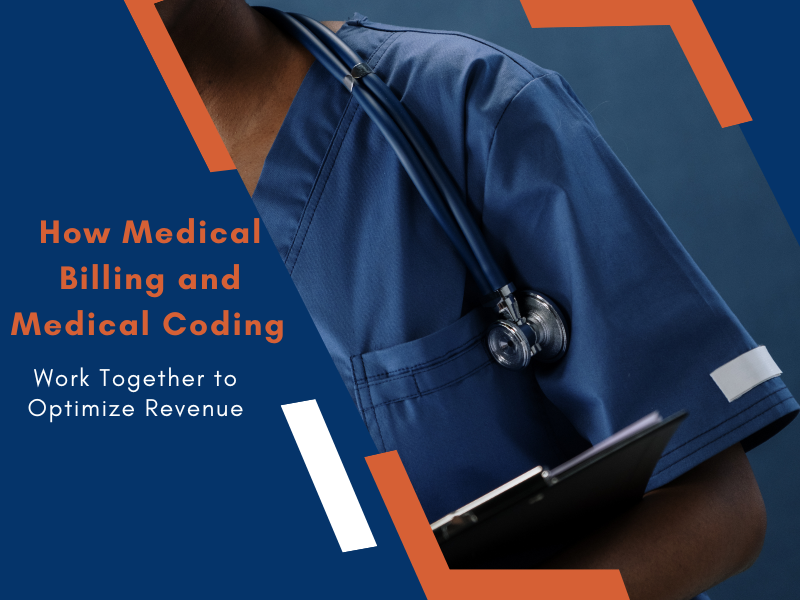In today’s fast-paced, tech-driven world, many industries are turning to digital solutions to streamline processes, reduce errors, and improve efficiency. Healthcare is no exception. Medical billing and coding, a vital part of the healthcare system, has increasingly moved online, revolutionizing how healthcare providers manage their revenue cycles. If you’re new to this field or considering a career in it, here’s everything you need to know about medical billing and coding online.
What is Medical Billing and Coding?
Before diving into the digital transition, it’s important to understand what medical billing and coding entail.
- Medical Billing: Involves submitting and following up on claims with health insurance companies to receive payment for services provided by healthcare professionals.
- Medical Coding: Is the process of translating medical diagnoses, treatments, and procedures into standardized alphanumeric codes. These codes are then used in the billing process to ensure healthcare providers are reimbursed correctly.
These two processes are crucial for healthcare organizations to maintain financial health while ensuring compliance with federal regulations and insurance requirements.
Why the Shift to Online Platforms?
The transition to online medical billing and coding isn’t just a trend; it’s a necessity driven by several factors:
- Efficiency and Speed: Online systems automate many aspects of the process, reducing manual errors and speeding up claim submission, which in turn shortens the time it takes for healthcare providers to get paid.
- Accessibility: Cloud-based medical billing and coding platforms allow healthcare professionals and coders to access the system from anywhere, making remote work a viable option. This is especially important post-pandemic, as remote working has become a norm in many industries.
- Cost-Effectiveness: Digital platforms reduce administrative costs by automating repetitive tasks, minimizing paperwork, and allowing real-time updates. This is a win-win for healthcare organizations and insurers alike.
- Compliance and Security: Medical billing and coding require strict compliance with HIPAA (Health Insurance Portability and Accountability Act) regulations to protect patient data. Online platforms are designed with advanced encryption and security measures to ensure that sensitive information is protected.
Key Features of Online Medical Billing and Coding Systems
When adopting online medical billing and coding platforms, healthcare organizations can expect several critical features:
- Real-Time Claim Submission: Automated claim submission and tracking help reduce delays and denials, ensuring faster reimbursement.
- Integration with EHR: Many systems integrate seamlessly with Electronic Health Records (EHR), allowing coders to pull accurate information directly from patient charts, reducing errors in coding.
- Audit Trails: Online platforms provide comprehensive audit trails, making it easier for healthcare organizations to stay compliant with regulations and prepare for potential audits.
- Advanced Reporting Tools: With online platforms, medical billing teams can generate detailed reports to track claim statuses, revenue cycles, and trends, aiding in better decision-making.

Benefits of Pursuing Medical Billing and Coding as an Online Career
The digitization of this field offers professionals in medical billing and coding new opportunities. Some benefits include:
- Flexibility: Many medical billing and coding jobs now offer the possibility of working from home, providing a work-life balance that was hard to achieve in the past.
- Growing Demand: As healthcare organizations adopt more online platforms, the demand for tech-savvy billing and coding professionals will continue to rise. According to the Bureau of Labor Statistics, employment in this field is expected to grow by 7% from 2021 to 2031.
- Career Advancement: Many online medical billing and coding courses are available, providing professionals with the opportunity to upskill and advance their careers from the comfort of their homes.
Choosing the Right Online Medical Billing and Coding Program
If you’re looking to enter this field or advance your career, selecting the right online program is essential. Look for programs that offer:
- Accreditation: Ensure that the program is accredited by recognized institutions such as the AAPC (American Academy of Professional Coders) or AHIMA (American Health Information Management Association).
- Comprehensive Curriculum: The curriculum should cover medical terminology, anatomy, billing, coding practices, and healthcare compliance.
- Job Placement Assistance: Many reputable online programs offer job placement assistance or partnerships with healthcare organizations.
The Future of Medical Billing and Coding Online
As technology continues to evolve, we can expect even more advancements in the online medical billing and coding space. Artificial intelligence (AI) and machine learning (ML) will likely play significant roles in automating more complex tasks, reducing errors further, and increasing efficiency. Additionally, blockchain technology might be used to ensure even greater security and transparency in medical billing processes.
Healthcare providers, billing professionals, and coders must stay updated on these trends to remain competitive and efficient in an ever-evolving field.
Conclusion
Medical billing and coding have come a long way from the days of paper records and manual processes. The shift to online systems has not only improved the efficiency and accuracy of the billing process but also opened up new career opportunities for professionals. Whether you are a healthcare provider or an aspiring billing and coding professional, embracing these online platforms is essential for staying ahead in today’s digital healthcare landscape.





